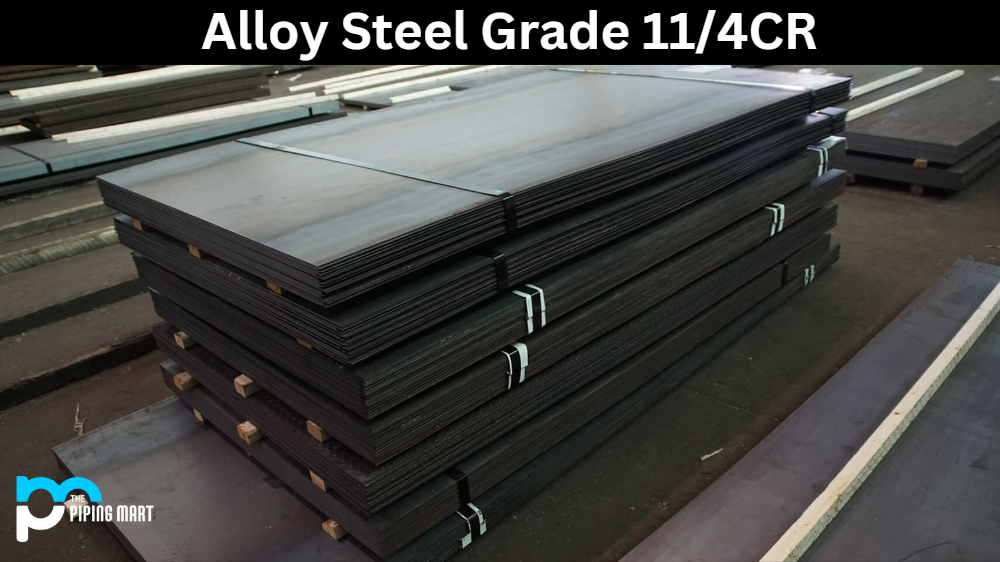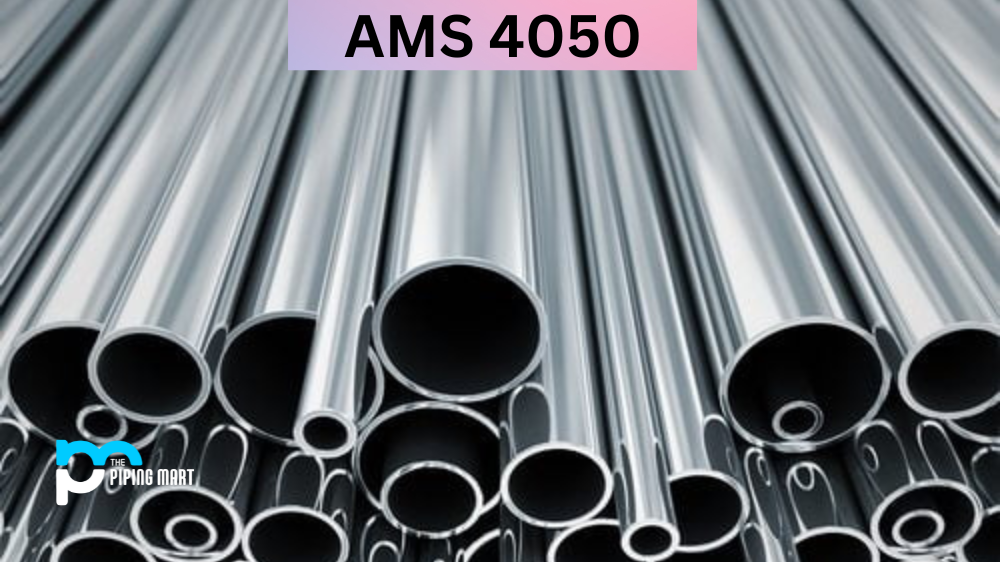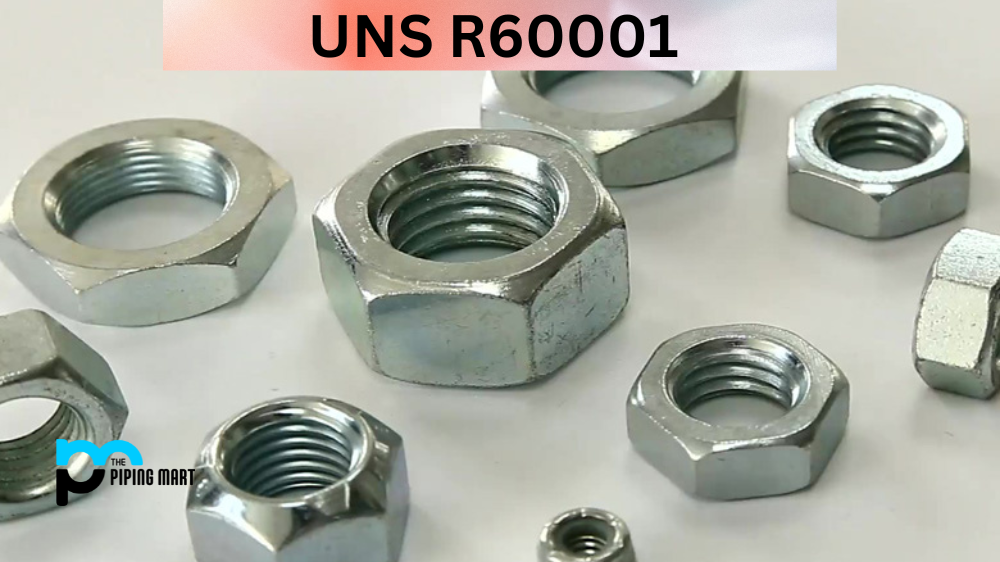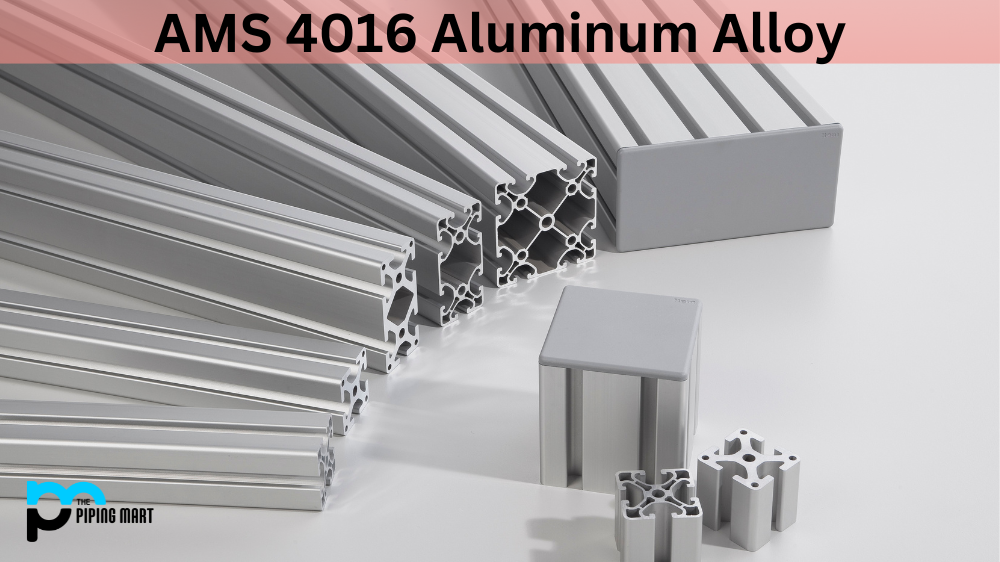Alloy Steel Grade 11/4CR is a versatile steel used in a wide variety of applications. It has high strength properties, excellent ductility and weldability, good corrosion resistance, and heat resistance. This steel grade has been used for decades in many industries, from automotive to construction to medical. Grade 11/4CR Steel is a popular choice for applications that require high strength and resistance to corrosion, heat, and wear. This type of steel is composed of chromium and molybdenum, giving it unique properties. The high level of chromium in the composition makes it highly resistant to corrosion, while the molybdenum helps to increase its strength and toughness. This makes it ideal for use in oil and gas, chemical processing, and power generation industries. Moreover, it is often used for parts that experience high stress, as it can withstand heavy loads and extreme temperatures. Overall, Grade 11/4CR Steel is a reliable material with exceptional performance in various demanding applications. In this article, we’ll explore the composition, chemical properties, mechanical properties, physical properties, uses, corrosion resistance, heat resistance, heat treatment processes, machining techniques and welding capabilities of Alloy Steel Grade 11/4CR.
What Forms of Alloy Steel Grade 11/4CR is Available at Piping Mart?
- Nut
- Bar
- Bolt
- Pipe
- Screw
- Tubing
- Valves
- Washers
- Flanges
- Fasteners
- Electrodes
- Stud Bolts
- Sheet Plates
- Pipe Fittings
- Forged Fitting
- Instrumentation Fittings
Alloy Steel Grade 11/4CR Composition
Alloy Steel Grade 11/4CR is composed of iron (Fe), carbon (C), manganese (Mn), chromium (Cr), nickel (Ni) and molybdenum (Mo). The alloy also contains trace amounts of phosphorus (P) and sulfur (S). The exact composition varies depending on the application but typically consists of 0.45-0.60% C; 0.30-0.50% Mn; 1-1.5% Cr; 0.7-1% Ni; 0.2-0.3% Mo; 0.035% P; and 0.04% S by weight.
| Elements | Min | Max |
|---|---|---|
| Fe (Iron ) | Bal | – |
| Ni (Nickel ) | 0 | 0 |
| Mn (Manganese ) | 0.3 | 0.6 |
| Mo (Molybdenum ) | 0.44 | 0.65 |
| C (Carbon ) | 0 | 0.15 |
| Si (Silicon ) | 0.5 | 1 |
Alloy Steel Grade 11/4CR Chemical Properties
The combination of elements in Alloy Steel Grade 11/4CR results in a material that has good formability and weldability as well as excellent tensile strength and yield strength characteristics when compared to other steels with similar compositions, such as AISI 4130 or 4340 sheets of steel. Additionally, the chromium content provides good oxidation resistance at elevated temperatures up to 732°F (400°C).
Alloy Steel Grade 11/4CR Mechanical Properties
Alloy Steel Grade 11/4CR has a tensile strength range of 655 MPa – 895 MPa with an ultimate tensile strength of 895 MPa when tested at room temperature with an elongation rate between 14%-17%. Its yield strength ranges from 490MPa – 735MPa with an ultimate yield strength of 585MPa when tested at room temperature with an elongation rate between 13%-16%. Additionally, its impact energy is greater than 75J at -196°C (-321°F).
Alloy Steel Grade 11/4CR Physical Properties
This grade of steel has a density range of 7800 kgm3 – 8200 kgm3 and a melting point range between 2550 °F – 2650 °F (1399 °C – 1454 °C). It also has good electrical conductivity due to its low resistivity values ranging from 54 μΩm – 65 μΩm at 20°C(68°F).
Alloy Steel Grade 11/4CR Uses
Alloys of steel often present an additional bang for the buck with their numerous applications across nearly every industry. Grade 11/4CR alloy steel, in particular, is a popular choice as it offers greater corrosion resistance than other alloys. It finds use in car and aircraft components due to its excellent formability, weldability and stress corrosion cracking properties. Reputed chemical companies make use of this grade of steel to manufacture marine components like ship propellers, fittings and trim that contend with pristine marine environments. Grade 11/4CR alloys are also used to fabricate chemical processing plants, heat exchangers, pressure vessels and oil refinery equipment thanks to their characteristic heat tolerance. The fact that these parts can be cast into intricate shapes truly makes Grade 11/4CR alloy steel a worthwhile choice where strength and durability are an absolute necessity.
Alloy Steel Grade 11/4CR Uses in Industries
Oil and Gas Industry
Alloy Steel Grade 11/4CR is commonly used in oil and gas due to its high strength and corrosion resistance properties. It is often used in pipelines, valves, and other equipment exposed to harsh environments, such as high temperatures and corrosive substances.
Aerospace Industry
The aerospace industry also utilizes Alloy Steel Grade 11/4CR for its high strength-to-weight ratio and resistance to corrosion. It is commonly used in aircraft engines, landing gear components, and other critical parts that require strength and durability.
Automotive Industry
Alloy Steel Grade 11/4CR has become increasingly popular in the automotive industry due to its lightweight yet strong properties. It is often used in engine parts, suspension systems, and other components that must withstand high stress and wear.
Construction Industry
Alloy Steel Grade 11/4CR is commonly used in the construction industry for structural components such as beams, columns, and support structures. Its high strength makes it suitable for heavy-duty applications, while its corrosion resistance ensures durability even in harsh environments. Its low maintenance requirements make it a cost-effective choice for construction projects.
Alloy Steel Grade 11/4CR Corrosion Resistance
Alloy Steel Grade 11/4CR is an austenitic stainless steel that offers superior corrosion resistance compared to other alloy steels. This grade of steel has a higher concentration of chromium, nickel, and copper, allowing it to stand up against harsh environmental conditions without corroding. In fact, this alloy can resist chlorine-induced pitting, making it suitable for various industrial applications such as heat exchangers and condensers. Grade 11/4CR can also be used in more specialized applications like aerospace systems and automotive components that require a durable material for their manufacturing. The corrosion resistant properties of Alloy Steel Grade 11/4CR make it an excellent choice for any project or product requiring a high level of protection from the elements.
Alloy Steel Grade 11/4CR Heat Resistance
Alloy steel grade 11/4CR is widely used for its impressive heat resistance capabilities. Its unique combination of chromium and vanadium allows it to remain resilient in extreme high temperatures, making it the popular choice for applications that experience heavy thermal stress, such as boilers, aircraft engines, pipelines, and refineries. In these settings, its corrosion-resistant properties make it ideal for blending with many materials. Its overall durability means it can be welded or machined easily while retaining this strength and heat-resistant quality. This makes alloy steel grade 11/4CR an incredibly versatile material used across a variety of industries.
Alloy Steel Grade 11/4CR Heat Treatment
Alloy Steel Grade 11/4CR is a single-phase ferritic-martensitic steel alloy known for its strength and hardness. Heat treatment of this grade can bolster the alloy’s excellent tensile properties even further, making it highly sought after across a wide range of industries and applications. To obtain the greatest benefit from heat treatment, it is recommended that Grade 11/4CR be slowly heated at temperatures between 760°C and 995°C and then either oil quenched or air cooled afterward. The specific type of heat treatment dictates the resulting strength, hardness, ductility and toughness, so each application should be tailored to meet its exact needs. With proper heat treatment of Alloy Steel Grade 11/4CR, end users can access exceptional properties that are often inaccessible with lesser grades of steel.
Alloy Steel Grade 11/4CR Machining
Machining alloy steel grade 11/4Cr can be a challenging but rewarding experience. It is strong, durable, and made to last in many different applications. With the right tools and techniques, it can be quickly and accurately machined to meet precise specifications. For example, drilling holes and milling contours into the material results in smooth, consistent outcomes every time. To get the best performance and highest accuracy possible, special considerations must be made when cutting this type of steel, including ensuring that the cutting tool is sharp at all times. The end result will make any machinist proud, knowing they created a precision product using an alloy steel of excellent quality.
Alloy Steel Grade 11/4CR Welding
Welding Alloy Steel Grade 11/4CR is a complex process due to its unique elemental composition. In order to achieve proper weld integrity and strength, it’s important to take into consideration the metallurgical properties of this type of steel during the welding operation. Knowing the optimal parameters such as preheating, post-weld heat treatment, interpass temperature, and others can help ensure that a strong, high-quality weld is produced each time. Additionally, correct filler metal selection and joint preparation are two very important factors that can greatly influence a successful weld. By paying close attention to the special requirements for welding Alloy Steel Grade 11/4CR, welders can successfully complete a variety of projects with confidence.
Conclusion
In conclusion, Alloy Steel Grade 11/4CR is a versatile steel used for many applications due to its high strength properties combined with its excellent ductility and weldability characteristics as well as its ability to resist corrosion and heat damage, making it suitable for use in industries such as automotive manufacturing, construction, medical devices, aerospace engineering, oil & gas extraction, etc. It can be machined using conventional machining methods such as turning, drilling, milling etc. It can also be welded using standard welding techniques like TIG welding, MIG welding etc. Finally, it can be heat treated either through normalizing or tempering processes depending on the desired end result. All these features make it one of the most popular alloys available today. Thanks for reading!
Meet Heer, a dynamic and driven writer learning tricks of her trade in the metal industry. With a background in Digital Marketing, Heer brings a unique perspective to her writing, sharing valuable insights. Apart from blogging she like reading and hiking.




